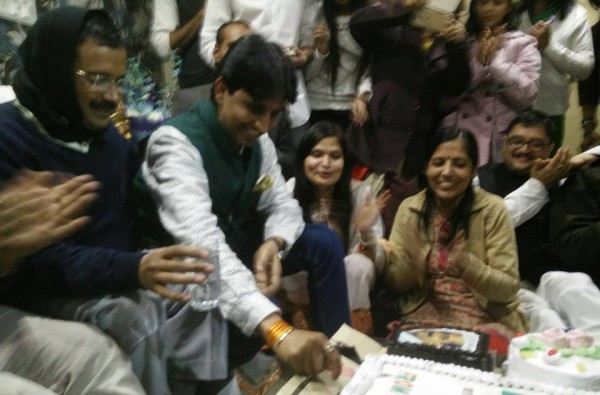The anti-corruption political organisation of Arvind Kejriwal, of the Aam Aadmi Party (AAP), has won a slamming victory in Delhi state elections hitting a sizeable setback for India’s Prime Minister Narendra Modi, to date considered ‘invincible’.
The BJP could do no less than admit the huge defeat given that the AAP won 67 of the 70 assembly seats.
Mr Modi sent his congratulations to the former tax inspector and AAP leader, whose political career took a downturn a year ago when he left Delhi’s chief minister post as a rebuff over a crucial anti-corruption bill. His party was routed by the BJP in last May’s general elections, months after the AAP made a spectacular debut in the 2013 Delhi voting.
It is the BJP’s first setback since it triumphed in the 2014 general election, while Modi had enjoyed huge popularity since taking office last year, winning a string of local elections and wooing international investors and world renown figures.
Final results gave Mr Modi’s Bharatiya Janata Party (BJP) just three seats. India’s main opposition Congress party failed to win a single constituency, mostly in big business and wooing political leaders.
After the win Mr Kejriwal told his enthusiastic party supporters that the “people of Delhi have achieved something spectacular”, and, “With the help of people, we will make Delhi a city which both poor and rich will feel proud of.” The Party had conducted a lively campaign that proved popular with working class and underprivileged voters who make up 60% of Delhi’s population.
“If people feel 2014 was the year of the Modi wave, this will be the year of an AAP sweep,” Rajesh Kumar Arya, a supporter, told the press, as AAP supporters set off fireworks and sang songs. The Kejriwal win was a ‘victory for common man’ was the general feeling.
In December 2013, Modi’s BJP won most seats but fell short of an overall majority in Delhi, leaving the AAP – the runner up – to form a coalition with Congress – which latter party’s candidate fell short of winning any seat at all in this Delhi election.
Mr Kejriwal took up his post previously in Government but resigned after only 49 days in office, when opposition politicians blocked a bill, one that would have seen an independent body with real power to investigate politicians and civil servants suspected of corruption.










